第22章 CHAPTER X.(1)
PURE REASON.
It must now be apparent enough that our Professor, as above hinted, is a speculative Radical, and of the very darkest tinge; acknowledging, for most part, in the solemnities and paraphernalia of civilized Life, which we make so much of, nothing but so many Cloth-rags, turkey-poles, and "bladders with dried peas." To linger among such speculations, longer than mere Science requires, a discerning public can have no wish. For our purposes the simple fact that such a _Naked World_ is possible, nay actually exists (under the Clothed one), will be sufficient. Much, therefore, we omit about "Kings wrestling naked on the green with Carmen," and the Kings being thrown: "dissect them with scalpels," says Teufelsdrockh; "the same viscera, tissues, livers, lights, and other life-tackle, are there:
examine their spiritual mechanism; the same great Need, great Greed, and little Faculty; nay ten to one but the Carman, who understands draught-cattle, the rimming of wheels, something of the laws of unstable and stable equilibrium, with other branches of wagon-science, and has actually put forth his hand and operated on Nature, is the more cunningly gifted of the two. Whence, then, their so unspeakable difference? From Clothes." Much also we shall omit about confusion of Ranks, and Joan and My Lady, and how it would be everywhere "Hail fellow well met," and Chaos were come again: all which to any one that has once fairly pictured out the grand mother-idea, _Society in a state of Nakedness_, will spontaneously suggest itself. Should some sceptical individual still entertain doubts whether in a world without Clothes, the smallest Politeness, Polity, or even Police, could exist, let him turn to the original Volume, and view there the boundless Serbonian Bog of Sansculottism, stretching sour and pestilential: over which we have lightly flown; where not only whole armies but whole nations might sink!
If indeed the following argument, in its brief riveting emphasis, be not of itself incontrovertible and final:--"Are we Opossums; have we natural Pouches, like the Kangaroo? Or how, without Clothes, could we possess the master-organ, soul's seat, and true pineal gland of the Body Social: I mean, a PURSE?"Nevertheless it is impossible to hate Professor Teufelsdrockh; at worst, one knows not whether to hate or to love him. For though, in looking at the fair tapestry of human Life, with its royal and even sacred figures, he dwells not on the obverse alone, but here chiefly on the reverse; and indeed turns out the rough seams, tatters, and manifold thrums of that unsightly wrong-side, with an almost diabolic patience and indifference, which must have sunk him in the estimation of most readers, --there is that within which unspeakably distinguishes him from all other past and present Sansculottists. The grand unparalleled peculiarity of Teufelsdrockh is, that with all this Descendentalism, he combines a Transcendentalism, no less superlative; whereby if on the one hand he degrade man below most animals, except those jacketed Gouda Cows, he, on the other, exalts him beyond the visible Heavens, almost to an equality with the Gods.
"To the eye of vulgar Logic," says he, "what is man? An omnivorous Biped that wears Breeches. To the eye of Pure Reason what is he? A Soul, a Spirit, and divine Apparition. Round his mysterious ME, there lies, under all those wool-rags, a Garment of Flesh (or of Senses), contextured in the Loom of Heaven; whereby he is revealed to his like, and dwells with them in UNION and DIVISION; and sees and fashions for himself a Universe, with azure Starry Spaces, and long Thousands of Years. Deep-hidden is he under that strange Garment; amid Sounds and Colors and Forms, as it were, swathed in, and inextricably over-shrouded: yet it is sky-woven, and worthy of a God. Stands he not thereby in the centre of Immensities, in the conflux of Eternities? He feels; power has been given him to know, to believe; nay does not the spirit of Love, free in its celestial primeval brightness, even here, though but for moments, look through? Well said Saint Chrysostom, with his lips of gold, 'the true SHEKINAH is Man:' where else is the GOD'S-PRESENCE manifested not to our eyes only, but to our hearts, as in our fellow-man?"In such passages, unhappily too rare, the high Platonic Mysticism of our Author, which is perhaps the fundamental element of his nature, bursts forth, as it were, in full flood: and, through all the vapor and tarnish of what is often so perverse, so mean in his exterior and environment, we seem to look into a whole inward Sea of Light and Love;--though, alas, the grim coppery clouds soon roll together again, and hide it from view.